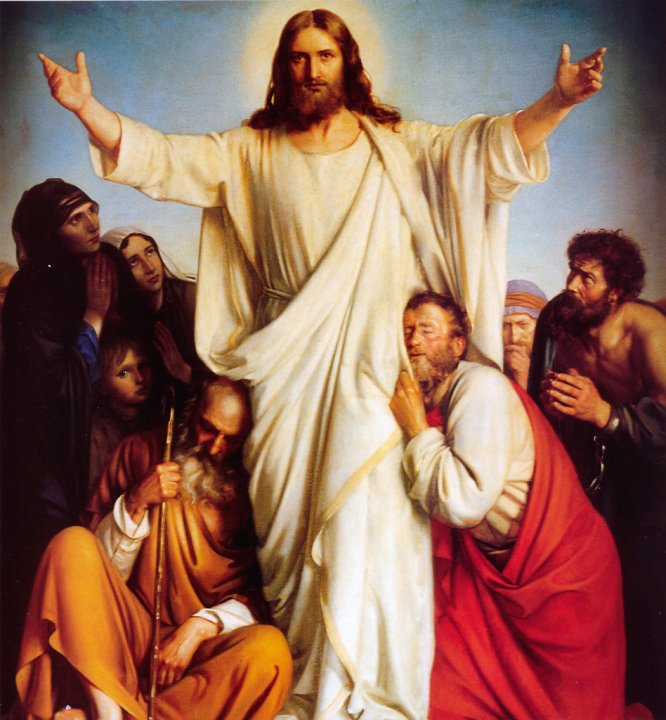FOURTH SUNDAY OF LENT- YEAR-B
I
Reading: 2 Chronicles 36:14-16, 19-23: The wrath and mercy of God are revealed
in the exile and in the release of his people.
The first
reading is the last chapter in the Chronicles, explains why the Jews were
deported and how Babylon was in time overwhelmed by the Persian Cyrus who saw
to it that the Jews returned home and their Temple was rebuilt.
II
Reading: Ephesians 2:4-10: You who were dead through your sins have been saved
through grace.
The theme
is God’s plan to bring everything together in Christ, to redeem Jew and pagan
in him.
Gospel: John 3:14-21: God saved his Son so that through him the
world might be saved.
Revelation: God’s Great Love, 3:16-17
The
fourth Sunday in Lent has been given the name “Rejoice-Sunday!” the name taken
from the entrance-antiphon which starts with the words: “Rejoice, Jerusalem…!”
Through
today’s readings, the church invites all her children ‘to rejoice; her complete
message to us is as follows: “Rejoice, since God definitely loves you all!” God
loved the people of Israel.
Jesus
came into the world to reveal God’s love for everyone. The testimony of Paul
was the Spirit gave Paul to understand and experience God’s love and mercy in
an extraordinary way. Paul tells us that each one of us can consider himself “a
show piece” of God’s love (Eph 2:10). Paul calls God “infinitely rich” in love.
Not just “rich,” but “infinitely rich” in mercy.
This
is the world’s most well-known Scripture. Brief and to the point, Jesus
revealed God’s great love.
1. The fact: God so loved (v.16)
2. The evidence: God gave (v.16)
3. The purpose: To save (v.16)
a.
From
perishing
b.
To
eternal life
c.
By
believing
4. The proof: God sent His Son (the
Incarnation) (v.17)
5. Not to condemn
6. But to save
Revelation:
Man’s condemnation, Jn 3:18-21
God
sent His Son into the world to save the world, but this does not mean the
everyone is automatically saved. In fact, some are condemned and doomed. Jesus
revealed man’s condemnation.
1. Who is condemned: not the believer,
but the unbeliever (v.18)
2. When he is condemned: already
(v.18)
3. Why is he condemned (v.18-20)
a.
He
has not believed
b.
Light
has come into world
c.
He
loves darkness; love his evil, his sin
d.
He
does not come to the light
4. Who escapes condemnation (v.21)
a.
He
who practices truth
b.
He
who comes to light
c.
He
whose works are done through God
Thought: God
loves every person, not just the religious and the good. God wants man/woman to
know His love. He wants to reach everyone in the world with His love.

No comments:
Post a Comment